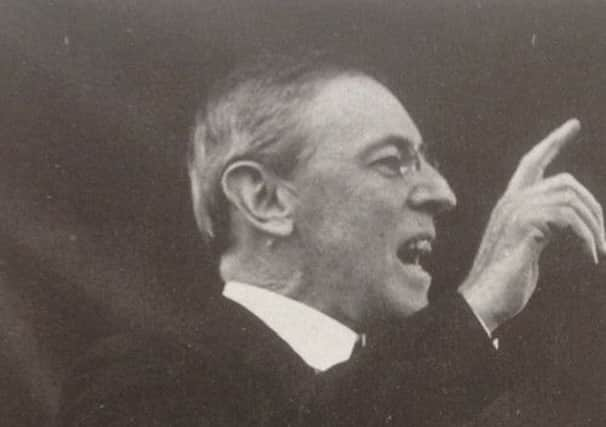Man of peace led US into war


President Herbert Hoover, in a tribute, said: “Three qualities stood out for Woodrow Wilson. He was more than just an idealist; he was the personification of the heritage of idealism of the American people. He brought spiritual concepts to the peace table, he was a born crusader.”
Woodrow Wilson, in the highest tradition of Ulster-Scots, advanced American prestige and honour throughout the world. His patriotism, idealism and Christian faith were inspiring to the free world.
Advertisement
Hide AdAdvertisement
Hide AdHis eight-year tenure as President was marked by great strides in social justice in America and in his tireless efforts to achieve global peace.
Wilson’s second term election returned him on the objective to “make the world safe for democracy”.
In January 1918, while the war was still being fought in the trenches of Europe, Wilson proclaimed his Fourteen Points, an extraordinary document mandating freedom of the seas, arms reduction, an end to secret treaties and, crucially important, a League of Nations to settle future disputes.
By November 1918, he persuaded Germany to sign an armistice on assurance that a settlement would be based on the Fourteen Points. Within a short time, however, through international fall-out from the war, the Fourteen Points floundered.
Advertisement
Hide AdAdvertisement
Hide AdWilson is one of the most common surnames in the English-speaking world, particularly in the United States and Scotland. In Northern Ireland, it is the third most common name. It is lowland Scottish in origin, traceable to the Clan Gunn, of Caithness.